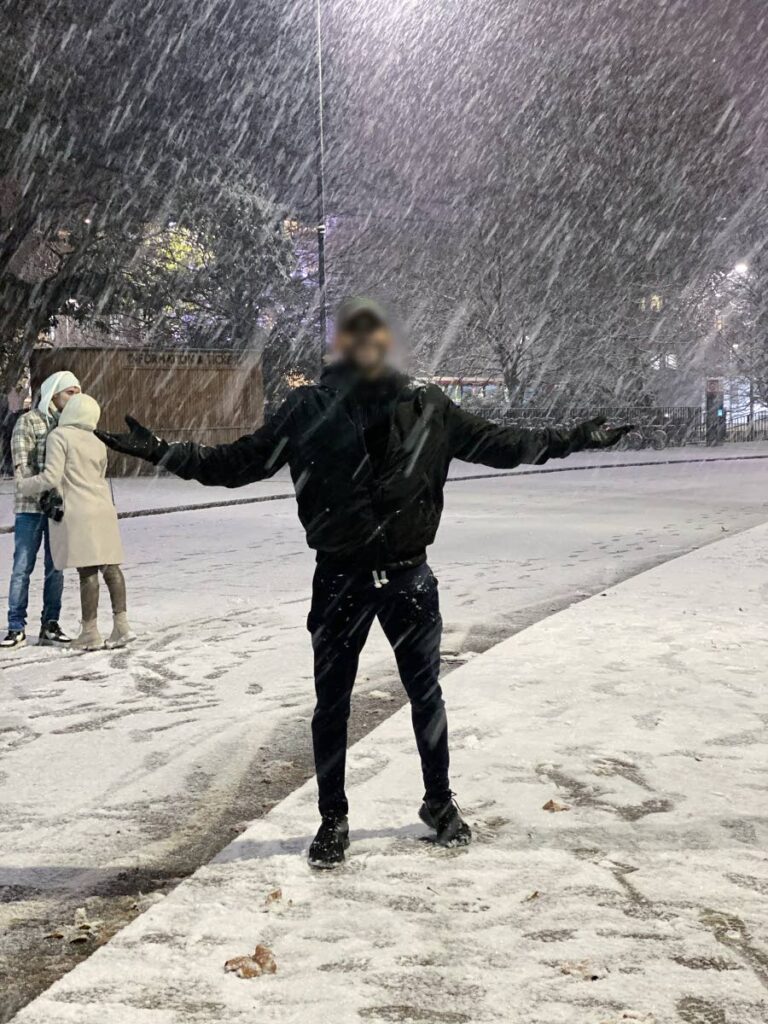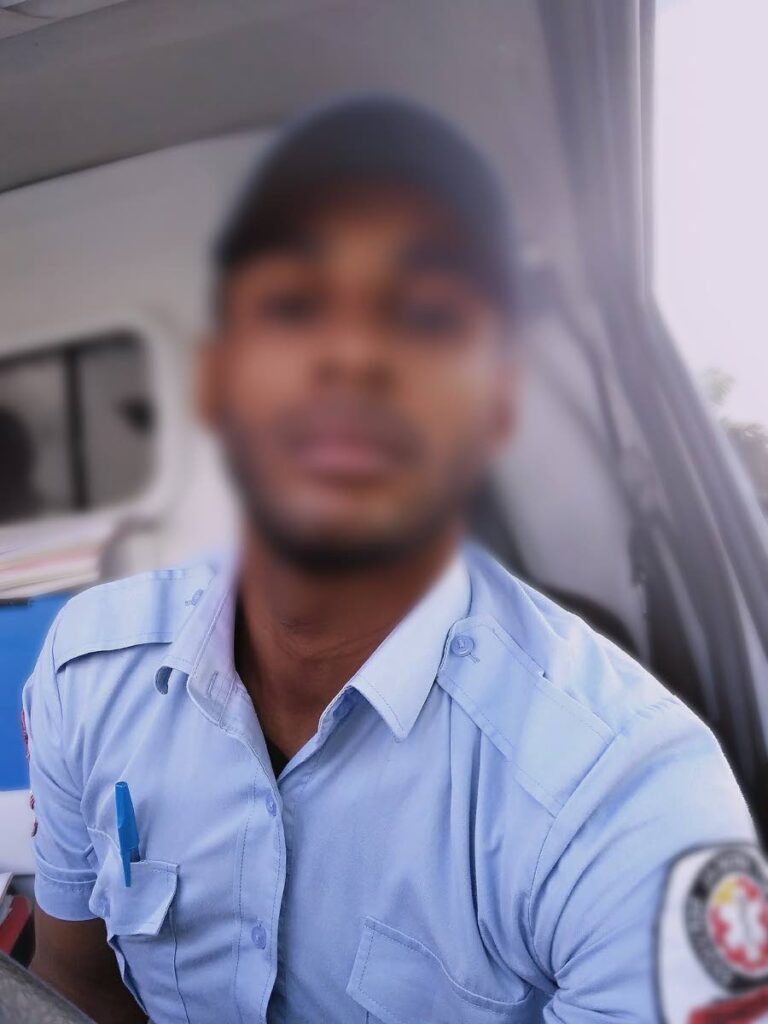How prison changed his life – Mason's triumphant journey

No one ever expected them to succeed. Many people were sure they would end up back behind bars.
Sunday Newsday tracks the progress of eight men who won their cases or got out on bail. Their lives outside prison are featured in a series on inmates from Debbie Jacob's CXC English classes and debate teams.
Why did these men make it when so many others failed?
Read their stories of redemption, rehabilitation and reinvention in the Sunday Newsday.
In an institution where anger and toughness served as the glue that bound everyone together, Lasan Mason stood out for being gentle and quiet.
But looks can be deceiving. The laser-focused teen who always sat in the front row during English class had a stony resolve to survive the Youth Training Centre (YTC) and succeed outside the institution that no one could imagine.
Mason came to YTC in November 2009, a month before his 16th birthday, and spent three years there, until November 2012.
“I was charged for larceny of about $200,000. They said I stole furniture, mattresses, beds and a guitar from people’s houses. I wanted to know how they thought I did these things, and where I put everything.”
Thinking it was obvious he couldn’t have committed the crimes he was charged for, Mason made a statement to the police.
“My mistake was making a statement without my mother present. She should have been there.
"She went to Naparima Girls' and was very educated.
"I pleaded guilty because it was up and down in court, and that meant a lot of money to fight a case. I’m not saying I was 100 per cent innocent, but what I got held and charged for is more than I could ever imagine doing in my whole life.”
When he got his three-year sentence to YTC, Mason said, “I felt so confused – like I was in a whole other universe. I looked around, saw those brown uniforms and thought, ‘This place is not for me, but I’m here, and I have to survive.’”
He joined every programme he could – especially those he felt would help him to communicate better.
“I learned how to understand people and how to live. You need to understand people to make it there or anywhere. I wanted my freedom and I wanted to do better. In YTC, I felt like I was in exile.”
At 18, Mason came out of YTC and embarked on his dreams of getting more education and working.
But six months after he went home, he got locked up again.
“They said my name was called in a robbery, and I was hiding, but I was going to school and studying computer literacy. I didn’t know about any charge. I was working with a company. I had money.”
Mason spent 11 days in Golden Grove Remand Prison.
“When I finally got to court, the magistrate agreed. I wasn’t hiding from the police, so I got out on bail.”
Again, the charges made no sense to him.
“I had a job. I was trying to survive and be educated, because I didn’t want to be known as a criminal.”
After three years, Mason’s second case was dismissed.
“But that case cost a lot of money,” he said.
Mason headed back to school. While living in Mayaro and studying in San Fernando, he got five CXC subjects: English language, maths, social studies, principles of accounts and office administration. He graduated and got a job doing maintenance work and then basic safety for a company.

Always personable, respectful and determined, Mason made headway. His striking good looks got him jobs as a model.
For a few years, he decided to withdraw from society and what he felt was constant police harassment. He tried his hand at agriculture and grew bananas and vegetables, including baigan, pimentos and sweet peppers. Farming provided isolation.
“When I re-entered society, I constantly got stopped by the police. I can’t say why. They probably knew who I was.
"I have a very low tolerance for nonsense.
"One time, the police asked me, ‘Whose vehicle are you driving?’ I had a valid driver’s licence and the vehicle was mine. I earned it. I worked for it.”
In 2018, Mason earned a certificate to become an emergency medical technician, and during the pandemic, from 2020-2022, he worked transporting covid19 patients to hospital. On his way home from work, the police kept stopping him.
“Finally, I decided this oppression thing is not for me.”
Mason went to Amsterdam and then London in 2022. He took courses in fashion design and became an apprentice chef. He doesn’t plan to return to Trinidad.
“I’m going to find a way to make it in Europe. I have friends I can trust.
"It is hard sometimes, but I try my best. I believe that I always wanted to be somebody.”
He had developed a habit of reading in YTC, and that still serves him well.
“Reading helped me to cope inside of YTC and understand the world better. In YTC, one of my favourite books was Cracker! The Best Dog in Vietnam by Cynthia Kadohata – the story of an army dog.
“I liked Malcolm X’s autobiography, and a young adult fantasy novel called The Boy Called It...It Begins by Wallace Edson.
"Out here, I read a lot. My favourite book is The Boy, the Mole, The Fox and the Horse by Charlie Mackesy. I like audiobooks, and I want to read The Diary of Anne Frank.”
Mason describes the years since he left YTC as “hectic.”
“I’m doing well. When I came out, I didn’t want to feel depressed, and I didn’t want to be the one to die from doing some jacka--ness and put my mother through that.”
His goals now are to design clothing and have his own business. He’s working on trusting people again.
“In Trinidad, I tried to do everything on my own and not trust people. I avoided talking to people and talking about my feelings. When I came to London, I met amazing people from Venezuela, Spain, Mexico and Afghanistan.
“When you have friends to love and trust, you don’t need a therapist. You build relationships. The best thing in life is when you are with friends and family – people who care. Then, you don’t stop living. You have adventures. It was a good decision to leave Trinidad.”
Looking back, Mason said, “For me, I had a choice. I could either become a criminal – as the system wanted me to be – or live life as the person I wanted to be. When you’re innocent and you know no one believes you, it’s hard.”
He said he knows his story could have turned out differently.
“I’m sure if I spent 15 years in prison before I was found innocent, I would have been a criminal. The system makes you angry and bitter. It degrades your character forever. You know people will always look at you as a criminal.”
Mason said people don’t realise how hard it is to catch a break for people from certain areas.
"It angers me that you can be treated better in a foreign country than in your own country.”
In London, he said, he finally feels happy. Nothing stands in the way of him and his dreams.
“My mom is important to me. I have her full support.”
Busy as he is, Mason said he wants to find the time to volunteer in a hospital.
“I always want to keep up with my work as a medic. It feels good when you save someone.”


Comments
"How prison changed his life – Mason’s triumphant journey"